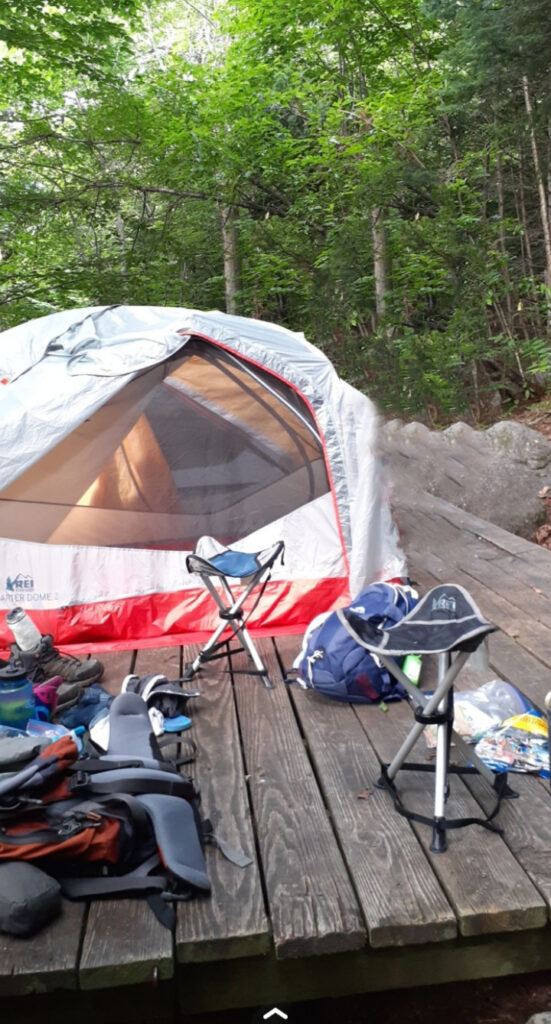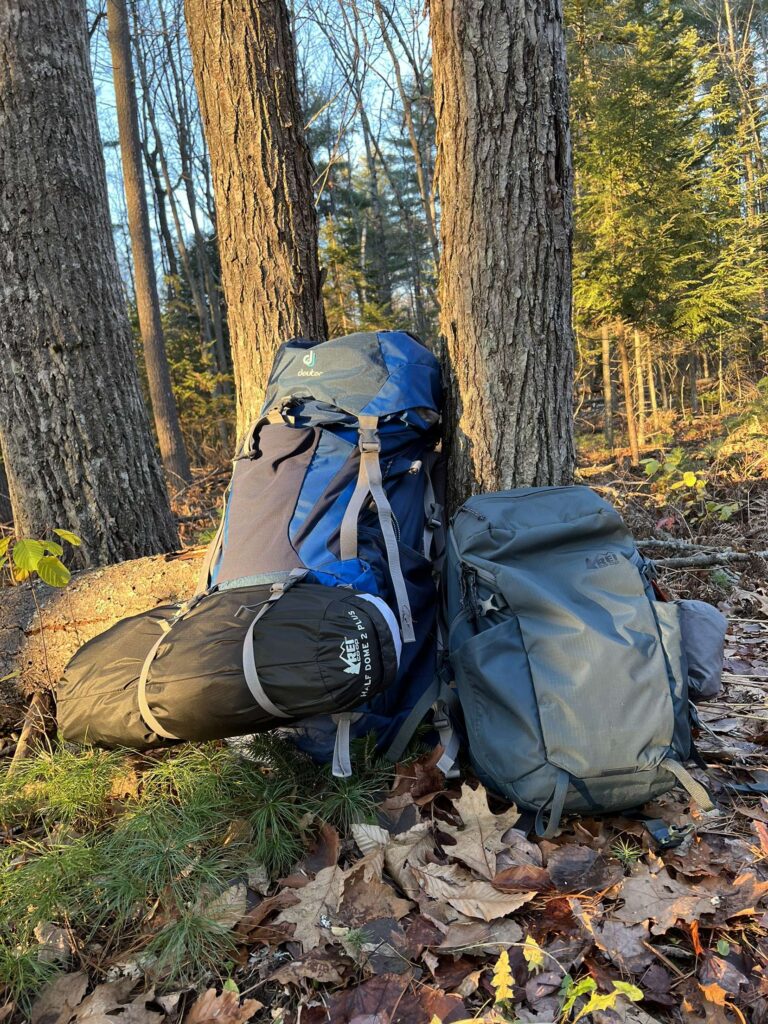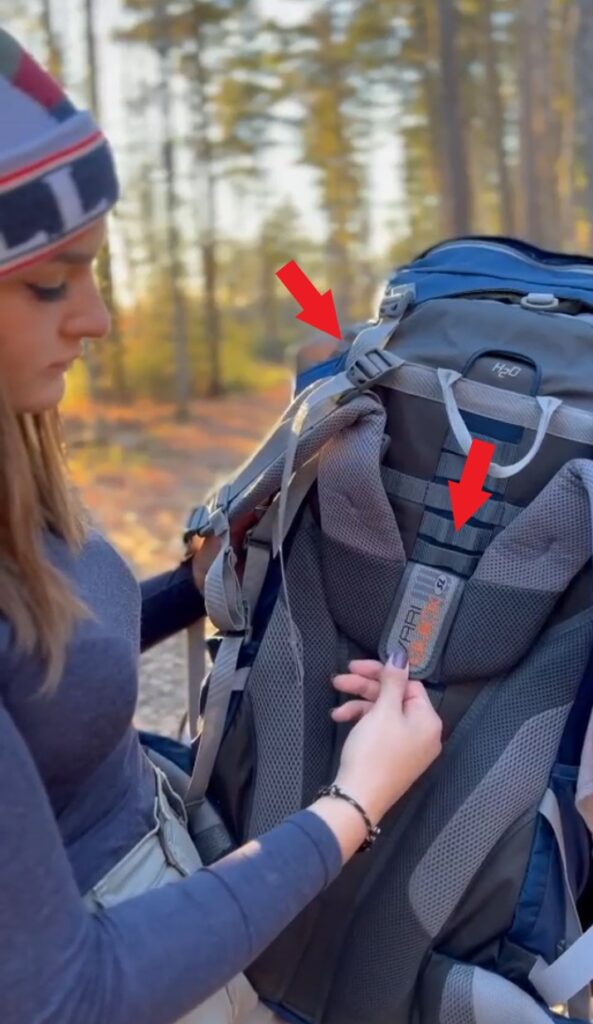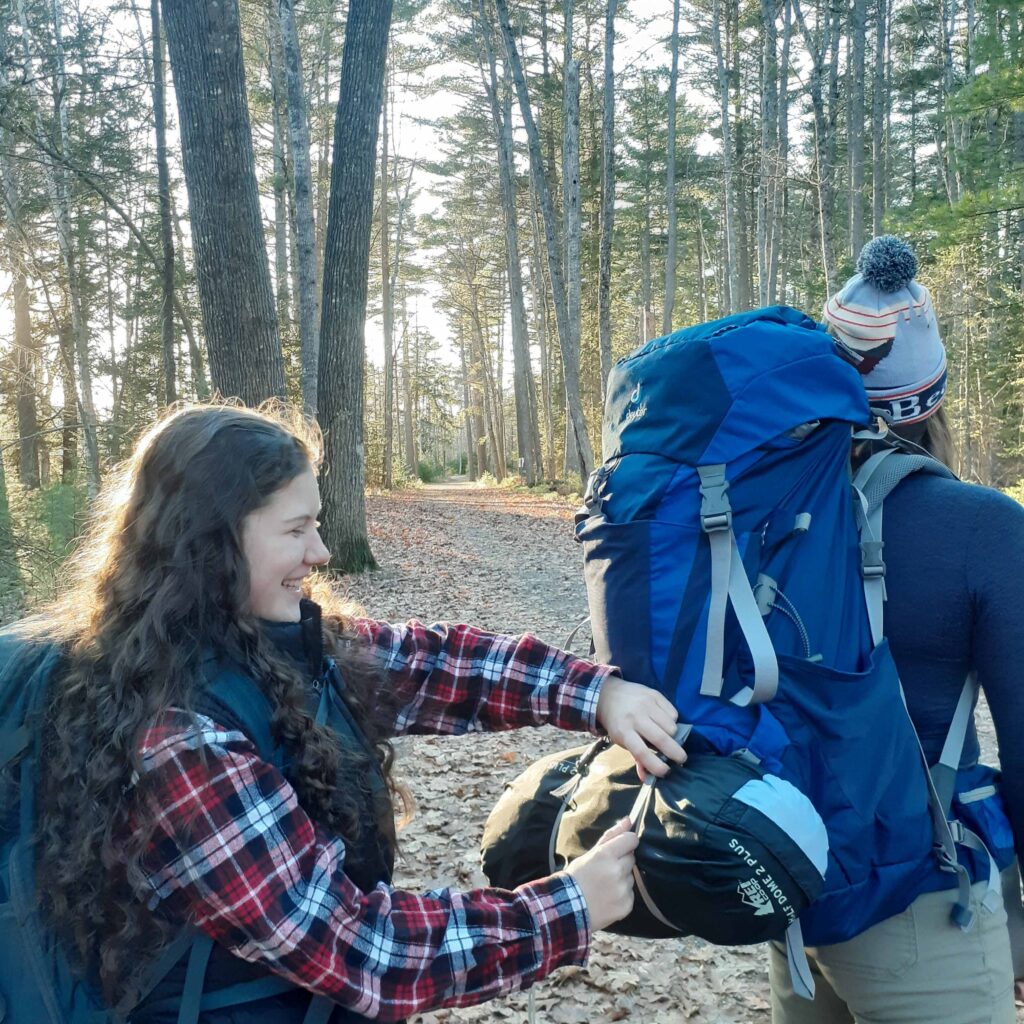Skip to main navigation
Skip to site navigation
Skip to content
Backpacking
Packing
What to pack
- Shelter
- Sleeping
- Bag, Sleeping pad (folding or inflatable)
- Raingear
- Raincoat, rain pants, rainfly/tarp, pack cover
- Water
- Bladder, water bottle, water filter
- Be careful using heavily worn bladders as they can leak
- Food
- Dehydrated food is easiest
- Cold soaking foods
- Saves weight
- Eliminates need to buy pre-packaged packets
- Non-crushable food items
- Bring a bear bag if required for the trip location
- Clothing
- Lightweight and warm
- Avoid cotton
- Survival
- First aid, map, compass, light source, GPS, pocket knife, matches, etc
- Sunscreen, bug spray, sunglasses
- Optional: hiking poles
- Good for balance due to the pack weight
- The downside is they can be cumbersome on rock scrambles. Collapsable shock-absorbing poles are the best
What to pack
- Classic backpack form
- Can customize according to body size
- Can customize according to pack weight/size
- Adjustable straps and load lifters
- located at the top of pack and center of pack
- Lightweight and durable
- Pack heavy items closest to your back
- Keep the weight distribution close to your body and not too far away from you
- Try and fit everything inside your pack rather than strapping to the outside
- Makes it more unbalanced
- Be sure not to over synch your pack- avoid damage to your trapezius
- Pack in drybags/stuff sacks
- Keep dry, small, and compact
- Bring only what you need
- Weight adds up quickly!
- Plan out food and other consumable items so that you are only taking what you will use for the duration of your trip, with a few extra just in case
Load lifters and shoulder height adjustment
Backpacking Safety
Safety Tips
- Don’t overload your pack
- Should be about 20% of your body weight
- Ex. 150 pounds should carry no more than 30 pounds
- Good footwear is required for a good footing
- Need ankle support, and traction
- Plan according to season and terrain:
- Waterproof
- Microspikes, crampons for rugged winter conditions
- Always hike with a buddy
- They can come in handy to tighten your hard to reach backpack straps!
- Tell someone where you are going, what your plan is, and when you should be back
Top




